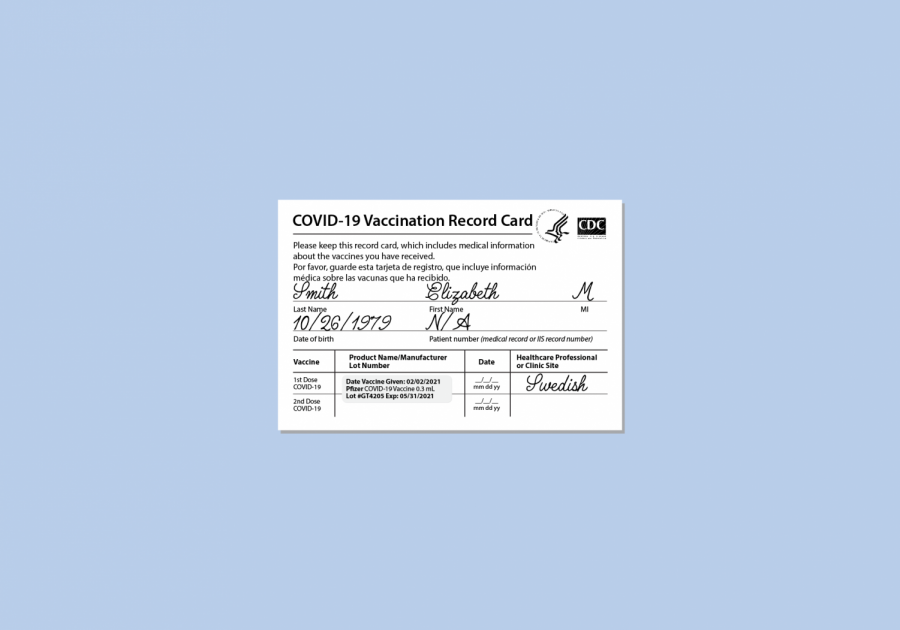Seattle U Changes Surveillance Testing Program and Vaccine Clinic Comes to a Pause
Seattle University has introduced a weekly testing system for students amid rising cases in the United States as a way to monitor COVID-19 cases on campus, in fall quarter 2020, Seattle U tested students through a randomized surveillance testing program. However the Reopening Task Force at Seattle U made the decision to increase the frequency of testing for winter quarter 2021.
The decision was made after noticing a significant rise, not only on campus, but the overall rates in King County—up to 700 cases per 100,000 during a two week period in late Nov. and early Dec.
Any student who lives on campus regularly needs to be tested, along with some commuter students each week. Commuter students still participate in the randomized testing system set in place last quarter. Those coming to campus are randomly selected for a sample of 10% of those that meet the weekly criteria.
On-campus students, non-athlete students and athletes are tested through two separate programs. One is located in the Murphy Garage, which is open to all residential students, including those living in the Douglas and Vi Hilbert Apartments. The second program is exclusively for student athletes, who are tested weekly through the athletic department.. Tara Hicks, director of the Student Health Center, elaborated on who is excluded from this testing program.
“Excluded from testing at the Murphy garage are students with symptoms or those in quarantine, but they are encouraged to access testing through the Student Health Center,” Hicks said in a written statement. “Also, any student who has tested positive for COVID-19 will be exempt from testing until 90 days after their positive test or symptom onset. This is due to the risk of false positives after infection.”
In addition to increased testing this quarter, residential students are allowed to participate in a residential pod program. Students that live in the same building may create groups—up to a total of five students—that may visit each other’s rooms.
According to a Housing and Residence Life (HRL) email, students may have a maximum of one guest from their pod per room at a time, roommates must be in the same pod and students may choose to not wear a face covering once in the room with the door closed.
HRL also imposed a plan if students within a pod are exposed or diagnosed with COVID-19. Their email stated that students may be assessed for quarantine if a student in the pod is symptomatic or tests positive for COVID-19.
Interim Director of Housing and Residence Life, Tim Albert, explained the protocols and quarantine processes for pods.
“Members of a pod or students who live in an apartment together who have a member who is positive or potentially exposed to COVID-19 may need to go into quarantine,” Albert said. “The contact tracing staff will evaluate based on potential exposure of the need to be placed into quarantine. They will continue to be tested while in quarantine.”
Additionally, Seattle U partnered with Swedish Medical Center to host a vaccination clinic on campus. Beginning Jan. 12, the clinic began vaccinating people eligible for the COVID-19 vaccine. However, just two weeks into the clinic, they announced that there would be a pause in the clinic operation.
“Due to a change in the state’s allocation strategy toward starting up mass vaccination clinics in other areas, our community clinic is currently on an operational pause, awaiting more vaccine supply; this takes effect Friday, Jan. 29.”
College of Nursing Dean, Kristen Swanson, helped lead the partnership on behalf of Seattle U. Despite the current pause in operations, Swanson shared how successful the clinic has been thus far.
“In under three weeks, we have delivered almost 22,000 vaccines. This includes just under 900 doses from the clinic that popped up the night of Thursday, Jan. 28,” Swanson said.
Due to a nearby hospital’s freezer malfunction, 1,600 doses of the vaccine were going to expire by 5:30 a.m. if not dispersed. Swanson explained that half of the doses went to University of Washington and the other half came to the clinic at Seattle U.
“We got the call at 10 p.m. and by 11 p.m., there were more volunteers that showed up than were necessary, and every dose got distributed by three in the morning. We distributed 897 doses that night. The math doesn’t quite work out because we always find that inside every vial, there are more doses than the vial says,” Swanson elaborated.
For now, the clinic is running condensed hours. Until they receive a steady flow of vaccines, they will most likely only have a clinic open one or two days a week. Despite the limited number of doses each week, community members will still be able to receive their second doses. Students and other community members are still able to volunteer by signing up at the Swedish clinic’s website.











